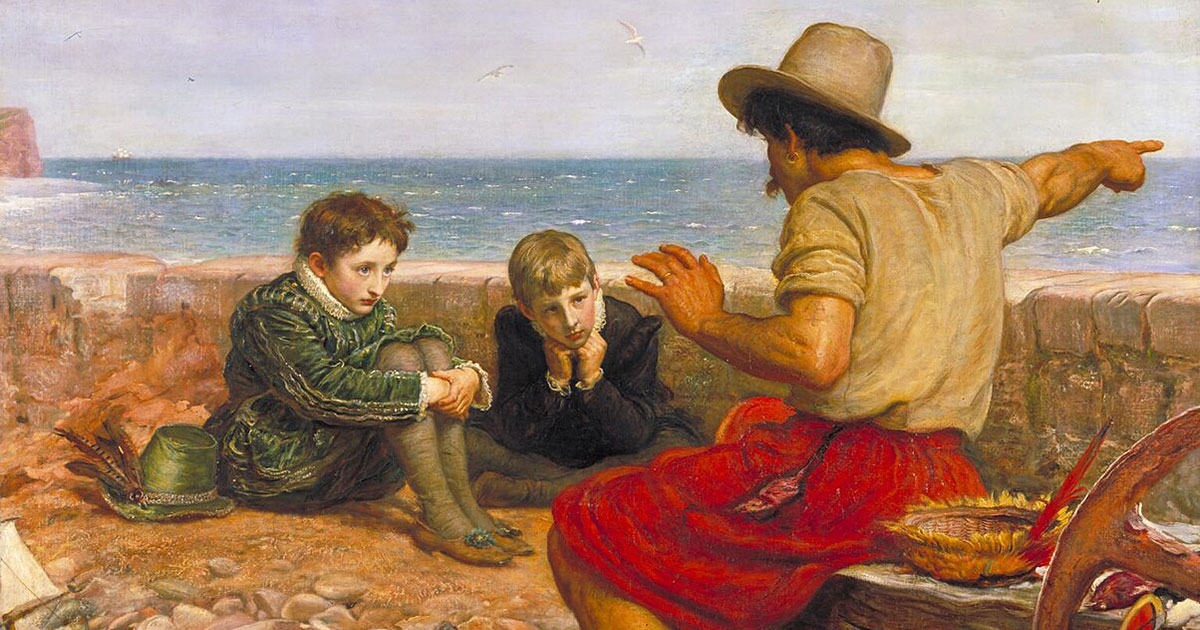A Round That Never Ends

John Everett Millais - The Boyhood of Raleigh
That need “to refresh the word,” to revitalize the vehicle of mythic transmission, seems to me the implied core of Campbell’s great work. Like Freud, he is far more interesting when viewed not as a guru but as a literary critic: one who tells his tale by giving other tales new life. From this angle, Campbell was a sort of reconstructionist, dedicated to narrative not only as a method of journeying beyond narrative, but also as the place to which silence ceaselessly returns. He was willing to submit to all that narrative implies — causality, authority, and the duality of speaker and listener — but only so that causality would be extinguished, authority replaced, and the listener metamorphosed into the teller in a round that never ends. Such an outlook, more practically, transforms the systems that threaten to crush us into an egress, a way out. The church that makes lapsed Catholics quail, the government that incites revolutionaries, the vagaries of parents and the false stratagems of art are not swept away here, but used as works, as stories that transport us to a place where they cease to exert their power. - Andrew Klavan, "Joseph Campbell, Myth Master"
